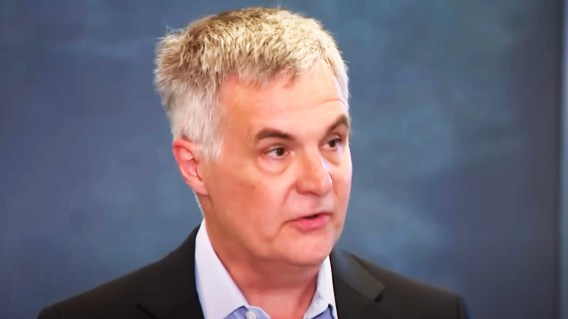Don’t sack Stephen Rue – Optus CEO needs better comms
In this probe into the deadly Optus emergency call crisis for Mumbrella, communications expert Peter Wilkinson traces the mistakes that led to the dire situation the telco finds itself in now.

Optus CEO Stephen Rue, reading the 000 apology (Sky News)
Don’t rush to sack Optus boss Stephen Rue. Besides owner Singtel’s interference, pause and think on this possibility: he’s a poor communicator, that’s clear, so he relied on his communication team, and the crisis was beyond them.
They weren’t prepared for this nightmare scenario. So, what we got was a series of missteps culminating in press conferences that further damaged Optus’ reputation.
My point is, in a catastrophe like this, we, the audience, want to connect with emotion and humanity, because that is what we are feeling. We are grieving and angry. Technical explanations, which is what we got, make it worse.
Optus desperately needed a report card that said something like: “They deserve to be severely punished for the catastrophe, but at least their responses showed they are improving.”

